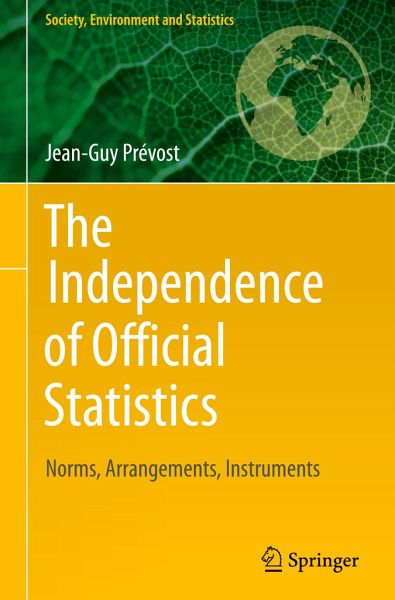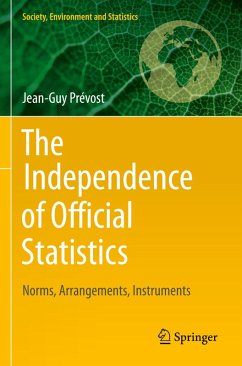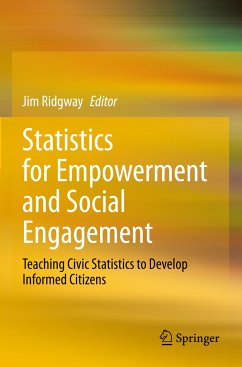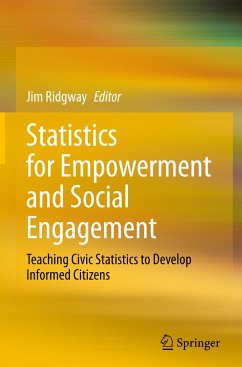
The Independence of Official Statistics
Norms, Arrangements, Instruments
Versandkostenfrei!
Versandfertig in 6-10 Tagen
91,99 €
inkl. MwSt.
Weitere Ausgaben:

PAYBACK Punkte
46 °P sammeln!
This book explores the independence of official statistics and describes the various legal and professional norms, institutional arrangements, instruments and practices that statisticians have developed over recent decades to protect their work from political interference. It argues that this 'drive for independence', which saw the replication of these norms, arrangements, and instruments across countries, was largely led by the international epistemic community of statisticians, and it identifies some of the paths and processes that enabled this drive.The study conducts an overall, multi-dime...
This book explores the independence of official statistics and describes the various legal and professional norms, institutional arrangements, instruments and practices that statisticians have developed over recent decades to protect their work from political interference. It argues that this 'drive for independence', which saw the replication of these norms, arrangements, and instruments across countries, was largely led by the international epistemic community of statisticians, and it identifies some of the paths and processes that enabled this drive.
The study conducts an overall, multi-dimensional, and detailed comparative examination of the thirty-eight OECD countries' norms, arrangements, and practices regarding the institutional and professional independence of official statistics. For that purpose, several dimensions have been surveyed and an index has been built that allows patterns and clusters to be uncovered among the OECD countries, shedding light on the variationsthat can be observed from one subgroup of countries to another.
The issue of the independence of official statistics has been at the heart of several recent statistical controversies, including that of Greece's debt, censuses in Canada and the United States, the Argentinian cost of living index, and some recent cases of resignation or dismissal of senior statisticians in various countries. Such independence has been a major topic of discussion in the epistemic community since the turn of the century, and concerns have also been addressed more widely, in the media. The subject of the book is particularly relevant as official statistics also play a significant role in monitoring the progress of the United Nations' Sustainable Development Goals.
This book will appeal to anyone interested in the topic of official statistics and to students of government in general.
The study conducts an overall, multi-dimensional, and detailed comparative examination of the thirty-eight OECD countries' norms, arrangements, and practices regarding the institutional and professional independence of official statistics. For that purpose, several dimensions have been surveyed and an index has been built that allows patterns and clusters to be uncovered among the OECD countries, shedding light on the variationsthat can be observed from one subgroup of countries to another.
The issue of the independence of official statistics has been at the heart of several recent statistical controversies, including that of Greece's debt, censuses in Canada and the United States, the Argentinian cost of living index, and some recent cases of resignation or dismissal of senior statisticians in various countries. Such independence has been a major topic of discussion in the epistemic community since the turn of the century, and concerns have also been addressed more widely, in the media. The subject of the book is particularly relevant as official statistics also play a significant role in monitoring the progress of the United Nations' Sustainable Development Goals.
This book will appeal to anyone interested in the topic of official statistics and to students of government in general.














